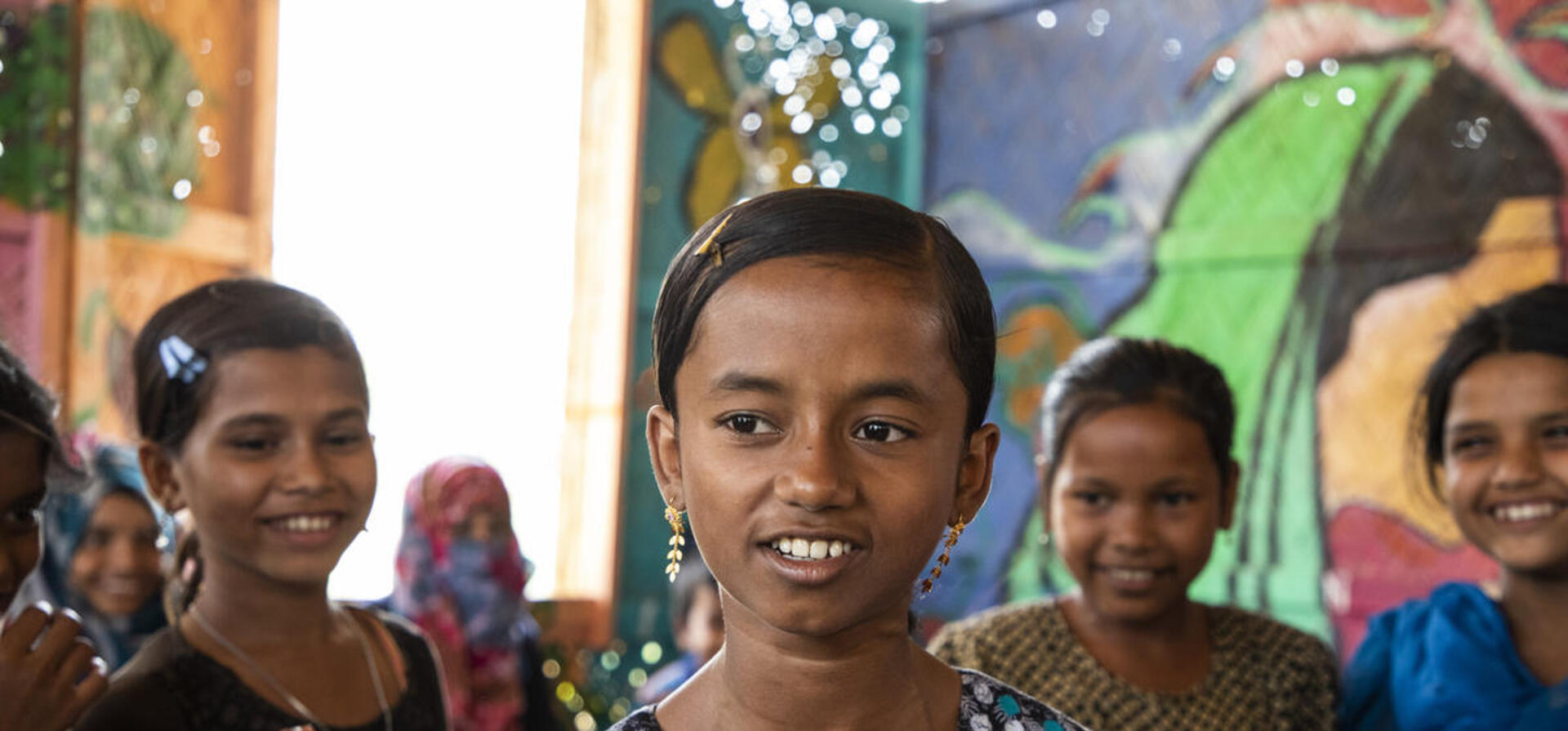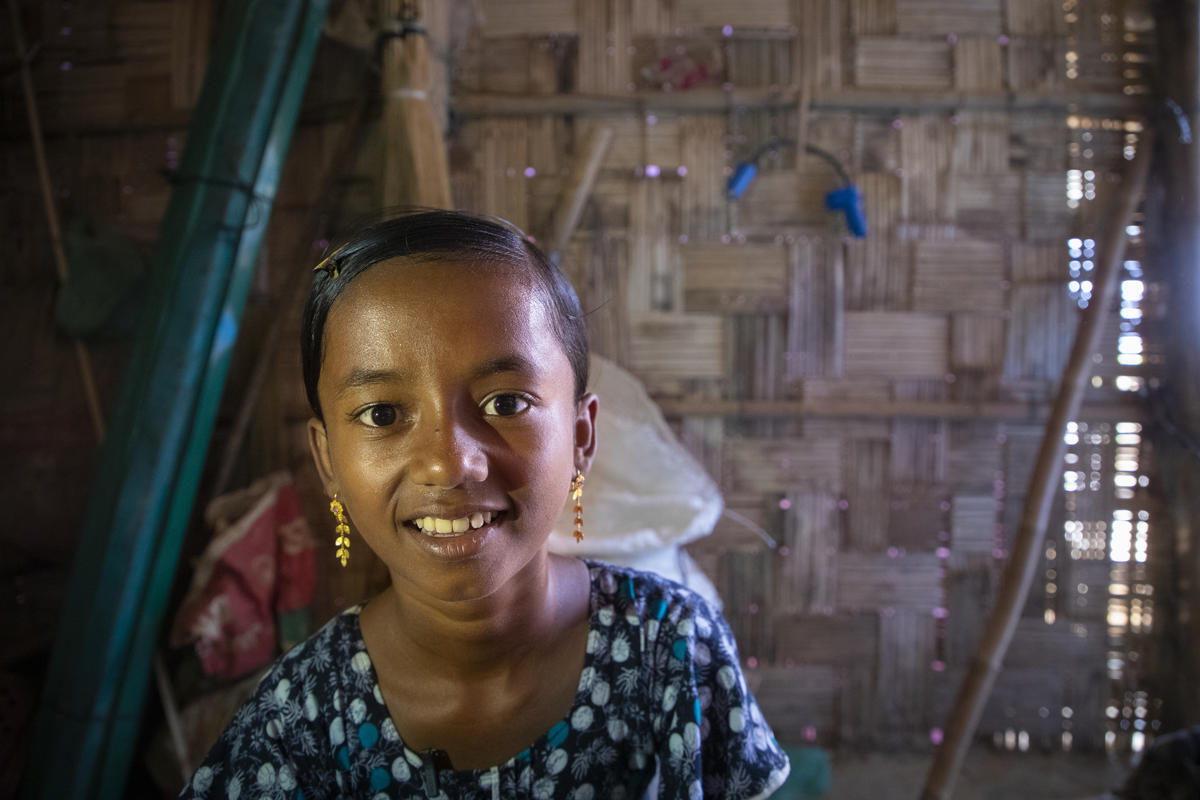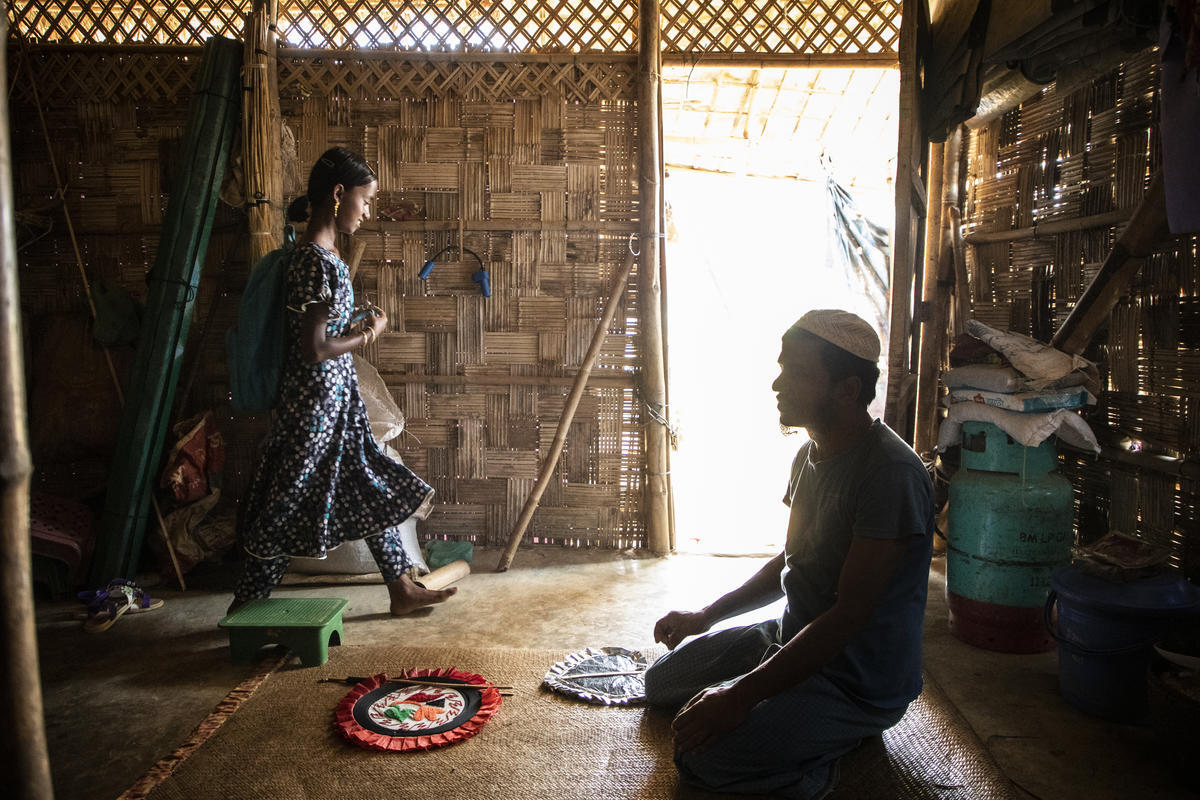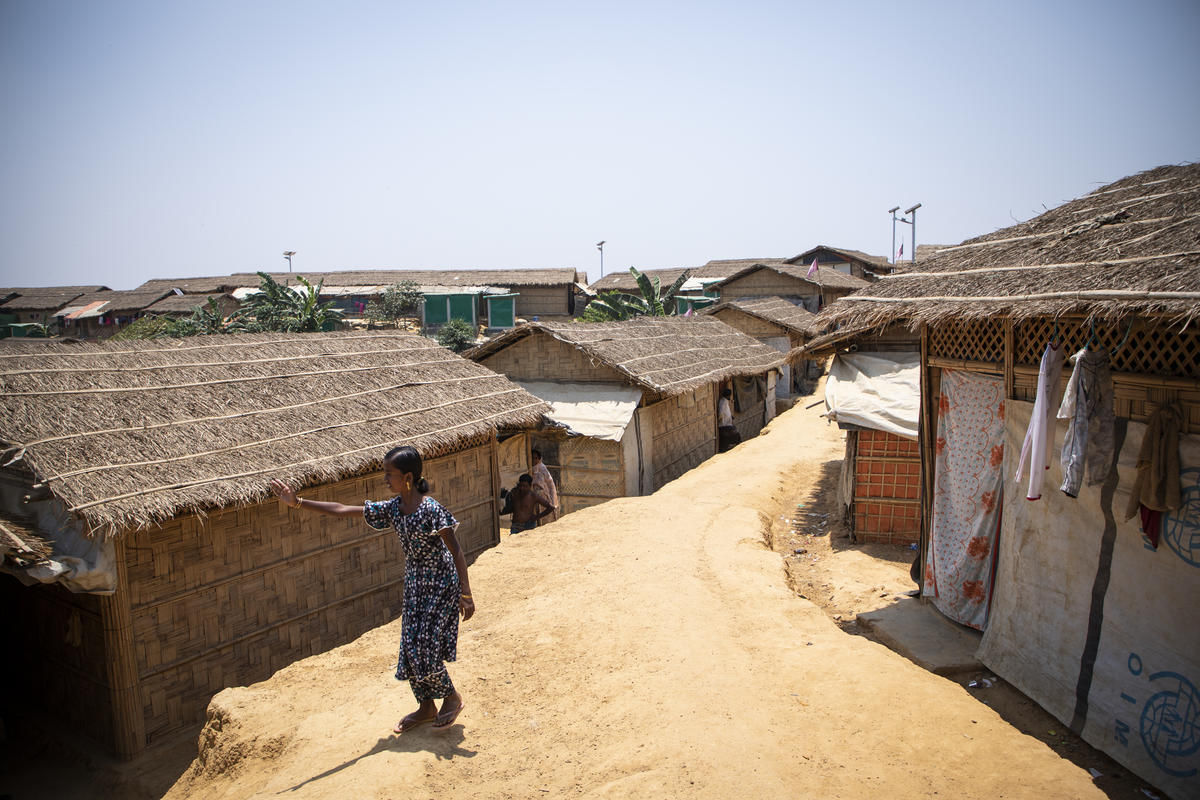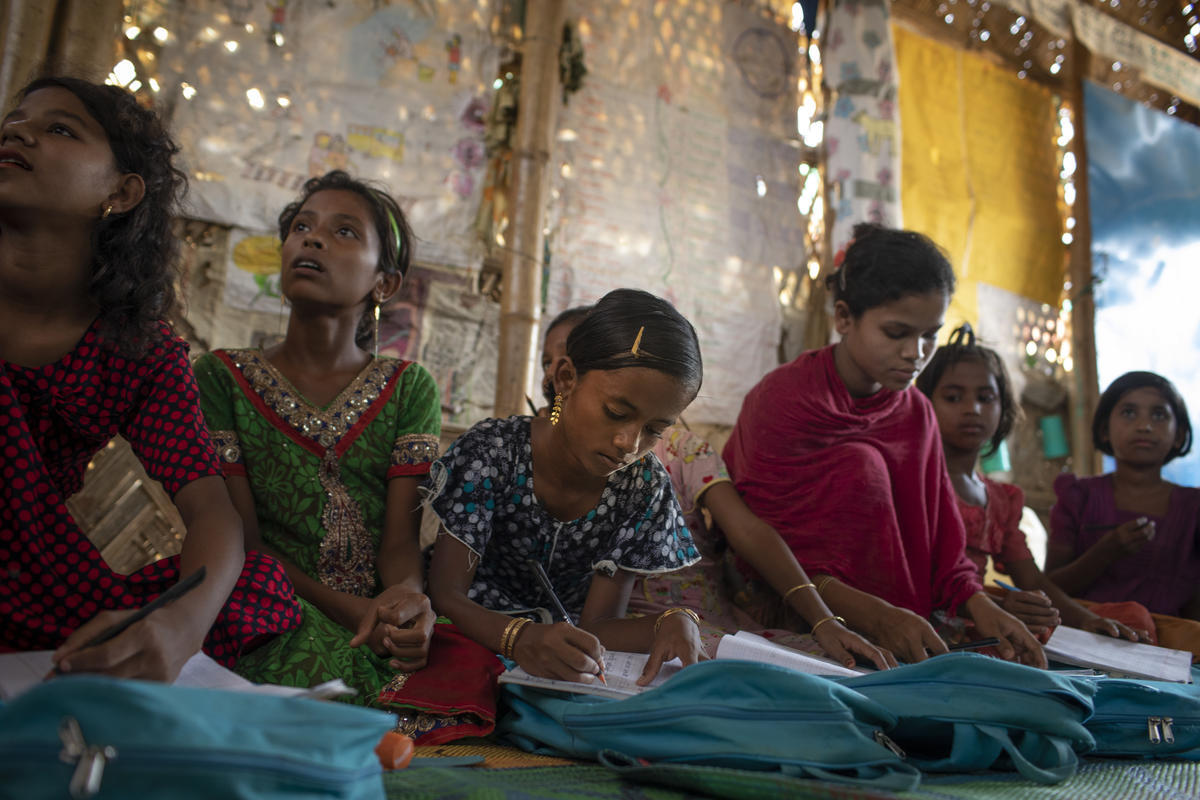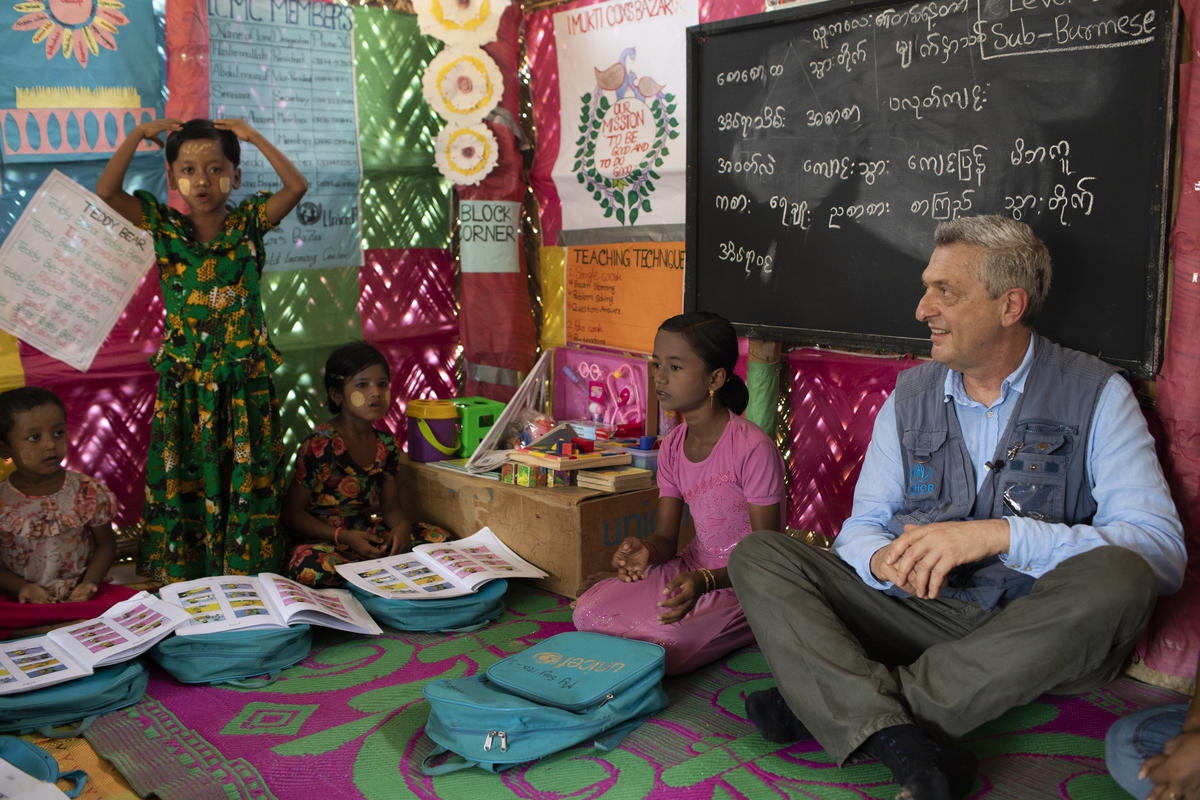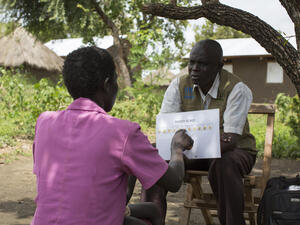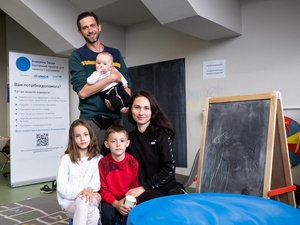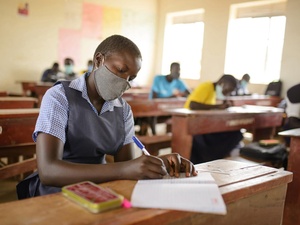Rohingya refugee children learn to support one another
Kneeling with 14 other children in a circle, 13-year-old Myshara calls out:
“When we’re in distress, who do we reach out to?” Myshara asks.
Voices, and answers, overlap. “Mum and Dad! Grandma and Grandpa!”
Rohingya refugee Myshara is leading a discussion group that is part of a peer-to-peer mental health programme for young refugees run with the help of UNHCR, the UN Refugee Agency, in Kutupalong camp – the largest of 34 camps in Bangladesh’s Cox’s Bazar district. The area is home to more than 860,000 Rohingya refugees, almost 55 per cent of whom are children. Most fled their homes in Myanmar in 2017. Violence, atrocities and persecution drove them out.
The young people in the group range in age from 10 to 18. They meet regularly to discuss their feelings, following a carefully scripted process. The key to the impact of these discussions is that they are led by people their own age.
Myshara is one such leader. She was identified by Rohingya community psychosocial volunteers who observed children in learning centres to find the right candidates.
Myshara admits she was daunted by the responsibility.
“At the beginning, when I was teaching the children, I used to be afraid. Now, I’ve broken through my fears and my shyness.”
There is little shyness to be seen as she leads the group through the key messages. Among them: mental illness is not a choice; recovery is. And there is no shame in seeking help.
One of the goals of the programme, which is run by UNHCR with three partner organizations: Relief International, Food for the Hungry and GK, is to break down a tradition of cultural stoicism. Talking about feelings, particularly feelings of unhappiness and sadness, is not something Rohingya adults or children usually do.
Myshara is an example of how that is changing. When she returns to the small bamboo home on a hill that she shares with her parents and three sisters, she passes on what she has learned from the programme.
"All this is helping to get rid of our dark experience."
“It’s a great happiness for me to help others to talk of these things,” she says. “All this is helping to get rid of our dark experience.”
The project began with a small group of children in early 2019 and, based on their positive feedback, had expanded to reach almost 24,000 children by the end of the year.
The onset of the COVID-19 pandemic earlier this year meant the group sessions had to be reduced or suspended just as children in the camps were having to cope with additional anxiety and confusion.
“We were all very scared,” recalls Mustafa, a 14-year-old boy who regularly attended sessions. “When we couldn’t meet, it hurt. We were really suffering because we couldn’t express our emotions, we couldn’t even play with our friends.”
Despite missing the group sessions, many of the children used the skills they developed in the first months of the programme to help their communities deal with the mental health toll of lockdown.
“When we couldn’t move around, I decided to speak with my family and my neighbours who live close by. I told them that no matter how difficult it was, the situation was temporary and would not last forever. I encouraged them to talk about their feelings, as this can help them to heal their pain,” says 18-year-old Muhammad, the charismatic leader of one of the groups.
"The lessons we learn here reach many people."
“When we talk to our families, they talk to the community, so the lessons we learn here reach many people. I think it has improved how the whole community deals with emotions,” he adds.
Since June, the sessions have resumed, but with smaller groups to allow for social distancing. As more and more children have come forward wanting to participate, new groups have been started to meet the demand. Despite the ongoing lockdown, the number of children attending sessions has now reached almost 30,000.
Mahmudul Alam, an Assistant Mental Health and Psychosocial Support Officer with UNHCR, explains that the peer-to-peer programme was designed, not just to empower children to teach one another, but to build their leadership skills, self-confidence, and ability to cope with adversity.
“Many of these children lost friends and loved ones when they were forced to flee Myanmar in 2017,” he says. “This programme helps them to reconnect, and to build up their resilience. Building up their self-belief has been crucial.”
For 11--year-old group leader Hamida, the programme has helped her deal with her fears and get support from her peers. “Here we talk about what mental peace is. Whenever we feel anxious, we do breathing exercises,” she says.
“We know now that anxiety and depression have a solution, there is nothing to be afraid of.”
See also: Refugees deliver mental health services to locked down camps in Iraq


